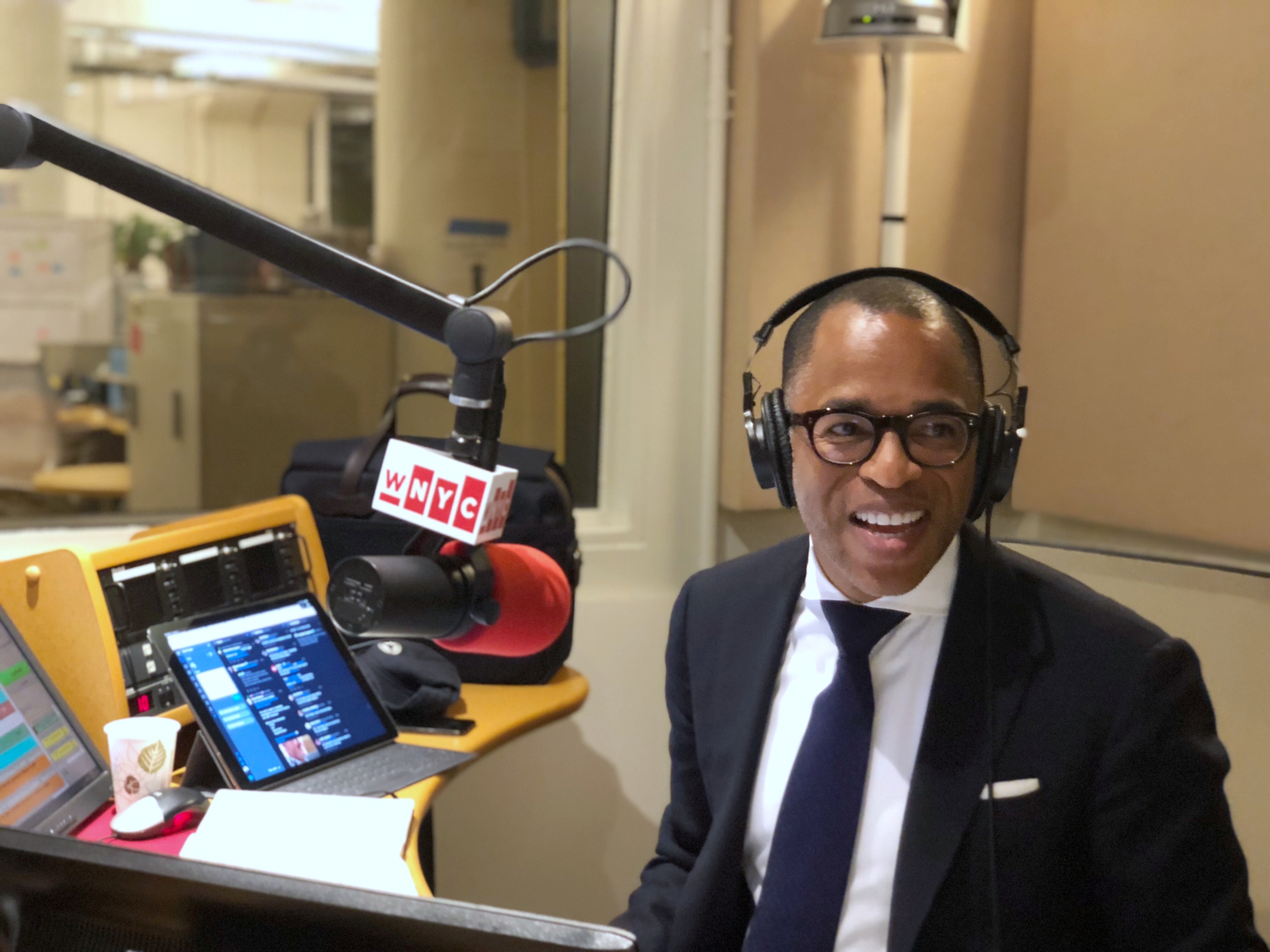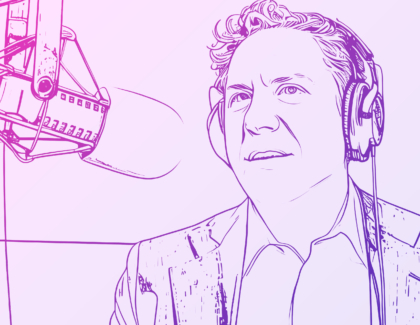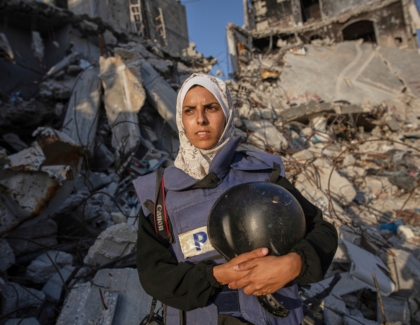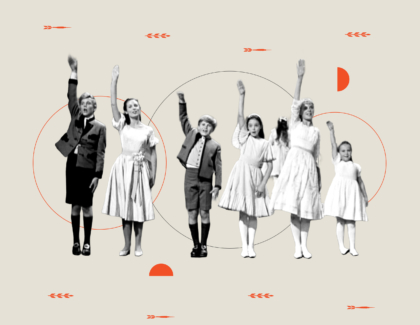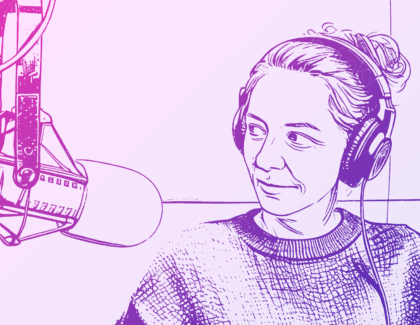Sign up for the daily CJR newsletter.
On Thursday night, five days before the midterms, Jonathan Capehart spoke into the red microphone above his desk in WNYC’s Varick Street studios. A plastic orange pumpkin sat on the table just outside, half-full of Halloween candy. Capehart had several M&Ms in front of him, in a line as precise as the tailoring on his navy suit and the fold of his white pocket square. The studio clocked marked the 23rd minute of “America On The Line,” his nightly news and call-in show, which covers the issues and attitudes that matter most to voters in every region of the US. A screen tuned to CSPAN-2 showed a Trump rally in Columbia, Missouri. “We really have to bypass the media,” Trump told the crowd that night, “because it’s so one-sided and unfair, in order to get straight to the American people.”
WNYC’s “America On The Line” followed in the pop-up, call-in tradition of 2012’s “Swing State Radio Network,” hosted by Brian Lehrer, and 2016’s “Indivisible,” in which the station hosted 100 nights of call-ins following Trump’s election. Capehart, a member of The Washington Post editorial board and a contributor at MSNBC, hosts panel discussions each weeknight with experts and poses questions to listeners, who punctuate the show with their live responses. As the Missouri rally unfolded, Capehart introduced Kansas journalist Sarah Smarsh, who was on the line from Wichita to talk voter suppression in what has historically been a Republican state.
“My part of the country is often portrayed as a vast sea of white people,” said Smarsh, “but it turns out we have folks of all sorts here.” Voter suppression had become a surprisingly important issue in her state, said Smarsh. One hundred and fifty miles west of Wichita, the county clerk had moved Dodge City’s only polling location to a building virtually outside the city limits. Smarsh detailed a town heavily reliant on the meat-packing industry, and therefore on immigrants to fill factory jobs. If Dodge City’s hispanic majority wanted to vote in the midterms, then its members would have to find their way to a polling site that lay far beyond bus routes, on a highway absent a sidewalk.
More than 150 radio stations across the country carry “America On The Line,” which curates a variety of voices and a range of local and national issues. Other panelists on Thursday’s show included writers for The Atlantic, Rolling Stone, and The National Review, as well as news directors at radio stations in Iowa and Tennessee. “We are all looking for healthy places to digest the news every evening, to be smart and mostly calm,” says Megan Ryan, WNYC’s head of live radio, who pitched the show in August. Staffers, according to Ryan, “believe in the act of bubble bursting—in letting people hear different regional accents expressing the same views they have, or busting their stereotypes by voicing the unexpected.”
Callers seem to appreciate Capehart’s careful listening. “What’s up with this $100 check you got?” Capehart asked a caller named Pepin from Milwaukee, Wisconsin. Republican Governor Scott Walker had sent out tax rebates for families with children as part of his re-election bid. “It felt like a real attempt to bribe people who are poor,” Pepin said. “Don’t get me wrong, I could have used that money, but I’m not about to be bribed, so I gave that money over to the Tony Evers campaign.”
“Wow, putting your money where your mouth is,” Capehart said.
Capehart actively courts calls from all sides. “Do we have any listeners who believe our government should be more authoritarian?” he asked during one episode. During another: “Can the listeners out there who think Trump is doing a great job give us a call?” The call screen always fills up. People from across the political spectrum listen, says Ryan. “We can drill down and ask for conservatives, teachers, people running for office. Lo and behold, they call us.” Capehart says the show builds on a foundation of empathy. “I act as the bridge, even if you know where I stand on an issue,” he says. “At least we can hear each other.”
Some calls stick with him. “Witnessing the death of truth is most troubling,” says Capehart. On Halloween, he asked listeners whether they would be voting from a place of fear or hope. Mark from Missouri called in to talk about the “Walk Away Movement.” Democrats were walking away from their party in droves, Mark said. “It’s going to be a red tsunami. Kavanaugh was the last straw.”
“What exactly are you talking about?” asked Capehart. When Mark couldn’t elaborate, Capehart thanked him for calling and said he had not heard about the movement.
Listeners respond to Capehart’s intellectual curiosity, writes executive producer Shelley Lewis in an email. “We step back and try to contextualize,” Capehart says. “We try to reveal things that get lost because of a presidential tweet or horrific incident.” After the deadly attack on the Tree of Life Synagogue in Pittsburgh, Capehart addressed the news but then brought on a panel to discuss how the country could heal without a “consoler-in-chief.”
Another time he put out a request for millenial voters. One caller, a young woman from Long Island, told Capehart she could not vote. “I’m undocumented,” she said. “It drives me crazy, young people not voting. If you don’t vote, these policies will jeopardize my future.”
“America On The Line,” which concludes its run November 8, disproves the notion that such projects can’t work because Americans are too angry and polarized, says Ryan. “People are so smart,” she says. “There’s a narrative that people are uninformed and lazy and not engaged. Then you get a call from somebody, laying out a health care issue. They really understand how it connects to how their congressman votes. It’s nice to just remind ourselves we’re not a bunch of idiots.”
Capehart thinks the youngest callers can be the most powerful. On Halloween night, Eliza, a 12-year-old from Manhattan, called in to share her greatest fear: that people would not vote. The 2016 election had made her want to speak out, she said.
“You were 10,” said Capehart.
Eliza asked listeners to remember the midterms affected each one of them personally, just as Trump’s election had. “It made me, as a girl, realize how many less opportunities I have,” she said, “and how I need to speak up to get what I want.”
Has America ever needed a media defender more than now? Help us by joining CJR today.



